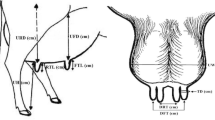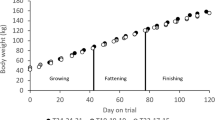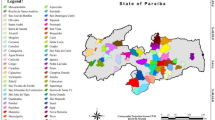Abstract
AN attempt has been made to estimate the extent to which selection for yield might be expected to influence the productive life of the buffalo. The calculations were carried out on data from animals that were not in the course of their productive herd-life. These animals were either dead, or culled from the herds studied. They were grouped together within herds according to their number of calvings. The average first lactation yield for the different groups was calculated and expressed as a percentage of their herd average. The total results for the herds were obtained by weighting the relative yields in similar groups in the different herds according to the number of animals contributing to them.
This is a preview of subscription content, access via your institution
Access options
Subscribe to this journal
Receive 51 print issues and online access
$199.00 per year
only $3.90 per issue
Buy this article
- Purchase on Springer Link
- Instant access to full article PDF
Prices may be subject to local taxes which are calculated during checkout
Similar content being viewed by others
Author information
Authors and Affiliations
Rights and permissions
About this article
Cite this article
ALIM, K. Longevity and Production in the Buffalo. Nature 171, 755 (1953). https://doi.org/10.1038/171755a0
Published:
Issue Date:
DOI: https://doi.org/10.1038/171755a0
Comments
By submitting a comment you agree to abide by our Terms and Community Guidelines. If you find something abusive or that does not comply with our terms or guidelines please flag it as inappropriate.



